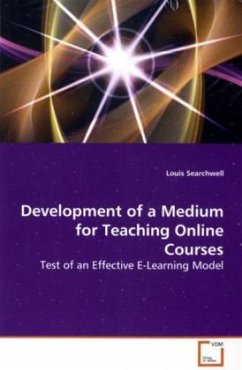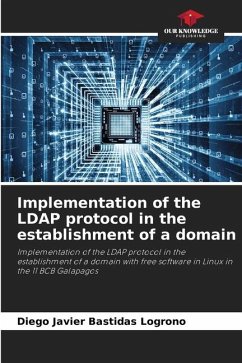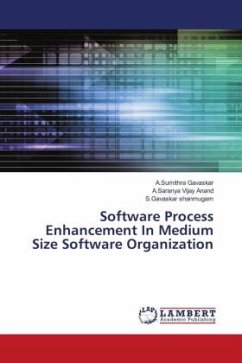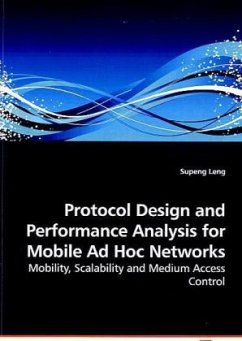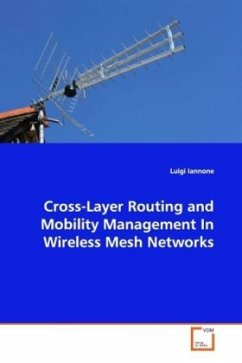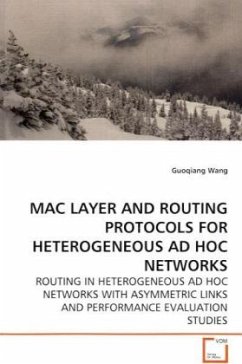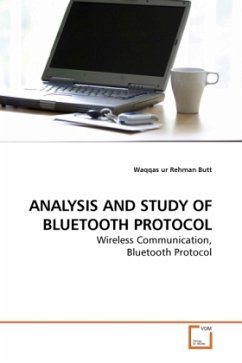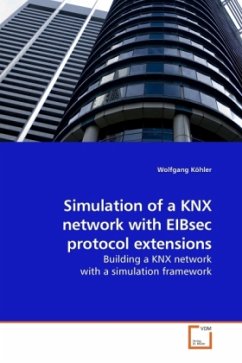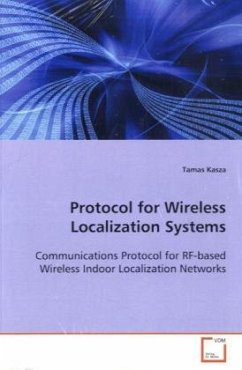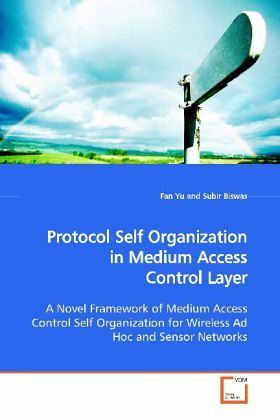
Protocol Self Organization in Medium Access Control Layer
A Novel Framework of Medium Access Control Self Organization for Wireless Ad Hoc and Sensor Networks
Versandkostenfrei!
Versandfertig in 6-10 Tagen
45,99 €
inkl. MwSt.

PAYBACK Punkte
23 °P sammeln!
The objective of this work is to investigate the role of protocol self organization at the Medium Access Control Layer in wireless ad hoc and sensor networks. While the traditional wired networks continue to enjoy relatively stable operating environments, the emerging wireless and sensor networks suffer from the operating instabilities of adjusting operating parameters and state machine logic due to their ad hoc deployments, specialized applications and various resource constraints. In order to utilize protocol reorganization to mitigate the instability effects, we propose a MAC self organizat...
The objective of this work is to investigate the
role of protocol self organization at the Medium
Access Control Layer in wireless ad hoc and sensor
networks. While the traditional wired networks
continue to enjoy relatively stable operating
environments, the emerging wireless and sensor
networks suffer from the operating instabilities of
adjusting operating parameters and state machine
logic due to their ad hoc deployments, specialized
applications and various resource constraints. In
order to utilize protocol reorganization to mitigate
the instability effects, we propose a MAC self
organization framework for both intra-MAC and inter-
MAC. For intra-MAC, we develop an In-band Self-
Organized MAC (ISOMAC) with a novel in-band control
mechanism. A cross-layer approach, Minimized Slot
Misordered Routing (MSMR) is also developed. For
validation and extension of the ISOMAC framework, an
application adaptation, Vehicular Self-Organizing
MAC (VeSOMAC), in vehicular networks is
investigated. Finally, we propose an inter-MAC self
organization framework in the form of dynamic MAC
protocol switching to accomplish the reorganization
across multiple protocols.
role of protocol self organization at the Medium
Access Control Layer in wireless ad hoc and sensor
networks. While the traditional wired networks
continue to enjoy relatively stable operating
environments, the emerging wireless and sensor
networks suffer from the operating instabilities of
adjusting operating parameters and state machine
logic due to their ad hoc deployments, specialized
applications and various resource constraints. In
order to utilize protocol reorganization to mitigate
the instability effects, we propose a MAC self
organization framework for both intra-MAC and inter-
MAC. For intra-MAC, we develop an In-band Self-
Organized MAC (ISOMAC) with a novel in-band control
mechanism. A cross-layer approach, Minimized Slot
Misordered Routing (MSMR) is also developed. For
validation and extension of the ISOMAC framework, an
application adaptation, Vehicular Self-Organizing
MAC (VeSOMAC), in vehicular networks is
investigated. Finally, we propose an inter-MAC self
organization framework in the form of dynamic MAC
protocol switching to accomplish the reorganization
across multiple protocols.



